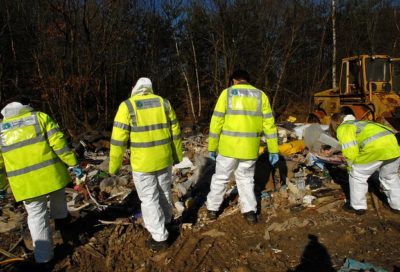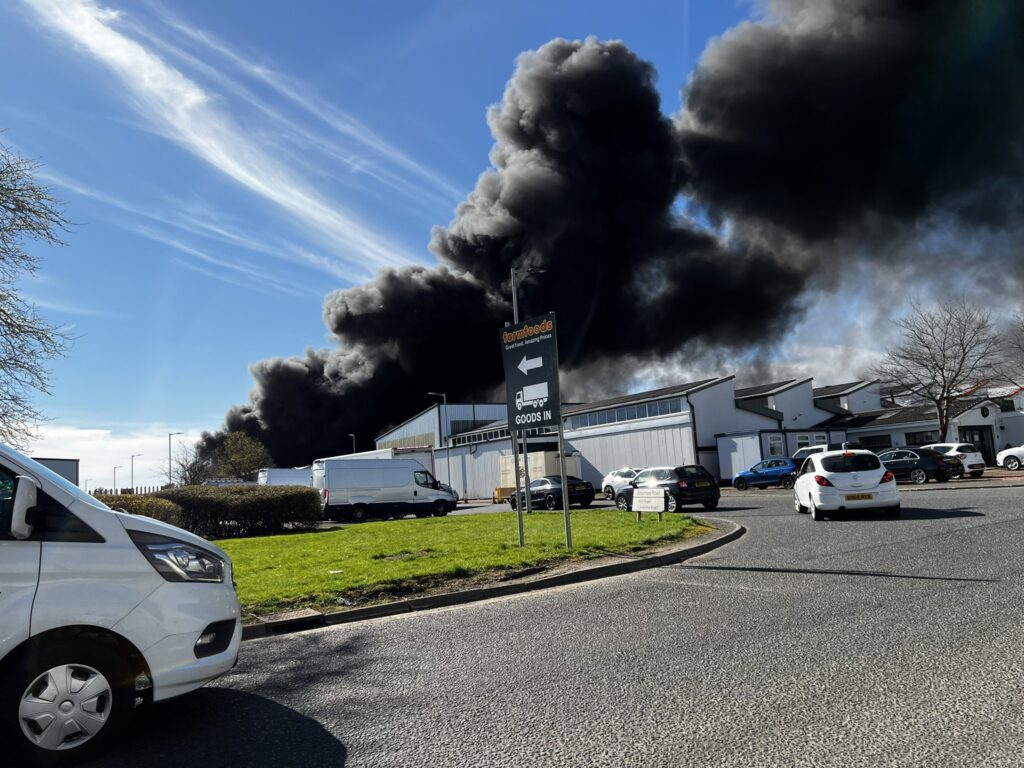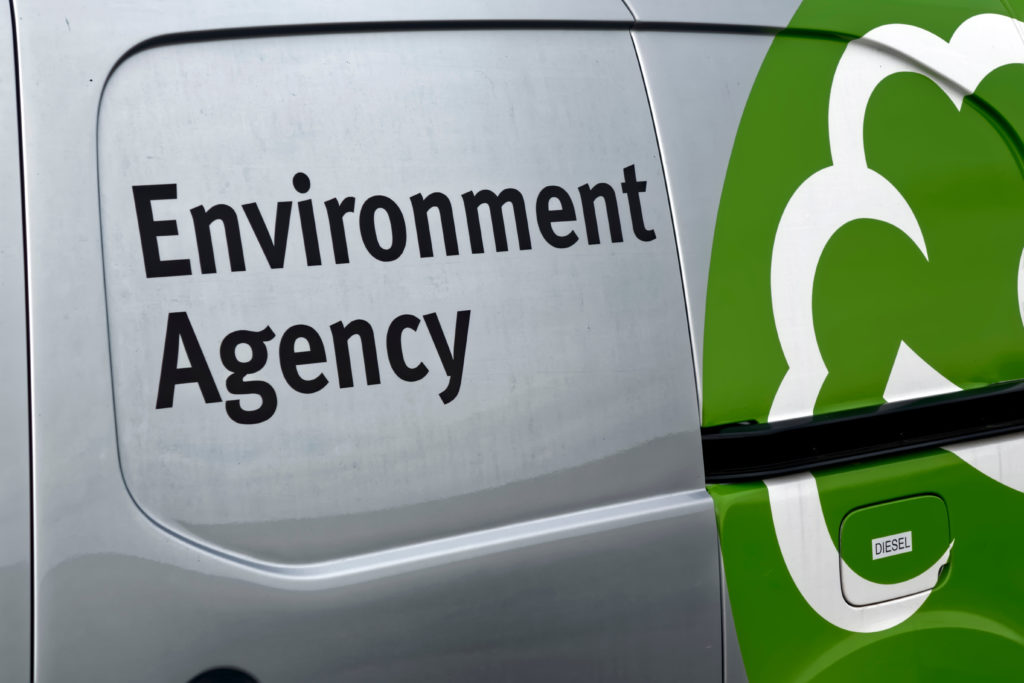The results of the independent review, ordered in June, were revealed by Defra today (14 November), which also recommended amendments to legislation to allow for “more effective prevention and disruption of organised crime”.

Other recommendations included ensuring waste producers be held accountable for the end destination of their waste products, and a reform of government funding for the regulation and policing of the waste sector.
The full list of recommendations can be seen below.
Government approach
The review looked at the government’s approach to tackling waste crime, and the recommendations of the review will now be considered and responded to in Defra’s forthcoming Resources and Waste Strategy.
Welcoming the findings, environment secretary Michael Gove said: “The threat to society from waste crime is real. Criminals are running illegal waste sites as a cover for theft, human trafficking, drug running and money laundering. It is costing our economy millions of pounds each year, and blighting our communities. I welcome today’s review. We are committed to clamping down on these unscrupulous groups and we will set out our next steps in our forthcoming Resources and Waste Strategy.”
JUWC
With regards to its recommendation for a JUWC, the report outlined that the unit should be “established as a command and control centre”, clearly directing the agency response on national and local priorities, and with the mandate to direct and coordinate “a joined up, multi-agency response in the most serious cases”.
It pointed to existing similar initiatives such as the National Wildlife Crime Unit and the National Food Crime Unit, saying they should be explored as potential models for the JUWC, “but may not go far enough in respect of leadership, accountability and control”.
Organised crime

The report began by looking further into organised crime groups, this was done by working with the National Crime Agency.
It found that there were 4,629 active organised crime groups (OCGs) on the NCA database: of these, 92 (2%) were involved in environmental crime “in its widest definition”.
After providing 20 OCGs to the NCA for mapping, it was found that each group was linked to seven other companies on average, suggesting that organised criminals in the waste sector “are more likely than other OCGs to be operating behind legitimate limited companies”.
Waste sites
The report also found that for three consecutive years, since the 2013-14 financial year, the number of new illegal waste sites was higher than those which have been closed. This shows, that “at best, current efforts are unable to resolve the issues”, the report read.
“Over recent years, changes in market conditions have revolutionised the waste industry. However, the regulatory model has remained largely unchanged. The increase of criminality in the sector is a product of this divergence,” the report explained.
Landfill tax
The 32-page report also went on to mention landfill tax, explaining that it is “impossible” to tell how much a drop in waste and tax receipts at landfills sites reflects an increased rate of ‘environmentally sustainable’ recovery of waste, or how much waste that would previously have gone to landfill is now being dumped illegally without any environmental controls.
“The current Landfill Tax gap [as seen in the table below] – the unpaid element of the expected tax from landfill, not including illegality – is 12%, approximately £125 million. Though they are higher, this is comparable to the tax gaps for tobacco duties and alcohol duties, both of which are subject to high levels of illicit trading,” the report said.

Chair
Lizzie Noel, who chaired the review, explained in today’s announcement that the report aimed to set out how the government can act to clamp down on waste crime.
“Our intention must be to give the criminals responsible real cause to fear the consequences of their actions. Today that is not the case,” she explained.
Ms Noel added: “I would like to record my thanks to my review team, my advisory board, colleagues at Defra and the Environment Agency.”
‘Strongly endorsed’
The review’s results were ‘strongly endorsed’ by the Chartered Institution of Wastes Management (CIWM).
Pat Jennings, the CIWM’s head of policy and communications, said: “These recommendations respond to repeated calls from CIWM in recent years for adequate resourcing of the regulators, a more multi-disciplinary approach to maximise intelligence sharing, and a stronger regulatory regime for waste carriers, brokers, and dealers (CBD) and Duty of Care.”
“This is a major milestone in the fight against the escalating problem of waste crime.”
Colin Church
Incoming chief executive, Institute of Materials, Minerals and Mining
Panel
CIWM’s former chief executive Dr Colin Church, who is now the incoming chief executive of the Institute of Materials, Minerals and Mining, was on the Defra-led advisory panel for the Serious & Organised Waste Crime Review and explained that the review will be effective in tackling the problem
“This is a major milestone in the fight against the escalating problem of waste crime,” he explained.
Dr Church added: “Calling on expertise from the police, the Environment Agency and the resource sector, the review has been effective in proposing a range of serious interventions to detect, deter and prevent waste crime and ensure that the regulatory and enforcement regime is strengthened.”
The full report can be read here.











Subscribe for free